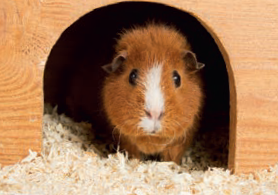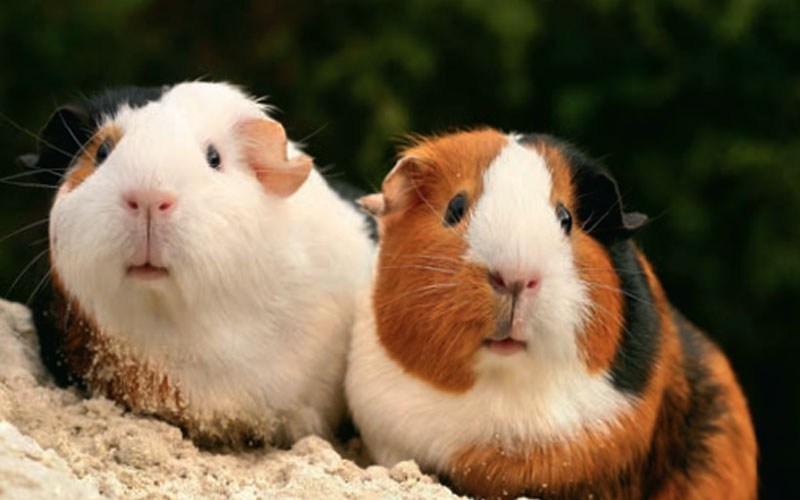They’re cute, cuddly and make wonderful family pets, but do you know what you need to do to give your Guinea pig the best possible care? Tim Falk investigates the five essential things you can do to raise a happy and healthy Guinea pig.
If ever there was proof of the old saying that good things come in small packages, Guinea pigs would have to be it. These adorable little bundles of fur are low-maintenance pets and, for the right owner, they make wonderfully cuddly companions.
“Guinea pigs make great pets for families that have limited space,” explains Emma Nicholson from Sirocco Cavy Stud. “They don’t need a lot of room, are relatively cheap to feed and are great for sitting on your lap watching TV in the evening. “They don’t need to be taken for a walk, they don’t bark at your neighbours and they don’t scratch up your furniture. I love how even though they’re so small, they each have their own personalities too.”
- Eating right
The right diet is essential for the health of any Guinea pig, and the greater part of a Guinea pig’s diet should be fresh, green grass. If that is hard to
come by, a good quality grassy hay is suitable as well, Emma says. “You will need to supplement the grassy/hay diet with fresh vegetables that are high in vitamin C, as Guinea pigs, like us, do not produce their own vitamin C and must consume it daily as part of their diet,” she explains. - Looking good
We all like to look our best and Guinea pigs are no different, but keeping on top of grooming for your furry friend is about much more than just
appearance. But if you own a short-coated Guinea pig, Emma says they shouldn’t require any grooming. - Living large
A crucial aspect in looking after a cavy is ensuring that you have the right housing setup to give your pet a home where they feel safe and comfortable,
and where all their needs can be met. Sydney small animal veterinarian Dr James Crowley recommends a large cage for your cavy — “the bigger the better,” he says.

- Parasite protection
How can you keep your cavy safe from any nasty parasites? “We treat our Guinea pigs every three months with a diluted version of Ivermectin specifically for Guinea pigs. It is a fantastic drug for treating internal and external parasites, but needs to be administered correctly,” Emma says. - Loved up
Last but not least, it’s crucial that you make sure your Guinea pig gets all the love, attention and social interaction they need. “Guinea pigs are herd animals and do best in social groups, or at least pairs,” Emma explains. “Left on their own, they may get depressed.” When it comes to human attention, however, some cavies crave all the love you can give them while others prefer to be left alone.
Want more on guinea pigs? Subscribe to Pets Magazine!


Leave a Reply